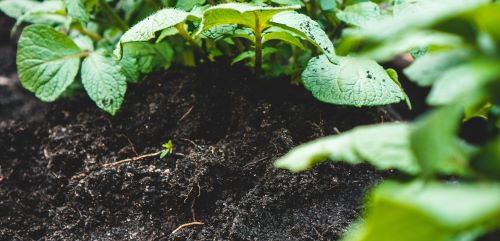


This guide explores their role, benefits, and how they fit into sustainable agriculture.
Emulsifiers help mix two liquids that usually do not blend well, such as oil and water. Agriculture primarily uses them to improve the formulation and application of pesticides, herbicides, fertilizers, and plant growth regulators.
By stabilizing mixtures, emulsifiers ensure that active ingredients remain evenly distributed, leading to more consistent application and better plant absorption.
With the increasing demand for precision agriculture and sustainable inputs, emulsifiers are a valuable tool for improving efficiency.
One of the biggest challenges in agriculture is ensuring that nutrients and plant growth regulators are absorbed efficiently. When applied in liquid form, many solutions tend to bead up on plant surfaces or run off before absorption occurs.
By improving uptake, farmers can reduce input costs while achieving better plant growth and development results.
Plant growth regulators are crucial in optimizing crop development, but incorrect PGR dosage can lead to growth imbalances or reduced effectiveness. Emulsifiers stabilize PGR solutions, preventing ingredients from separating or degrading over time.
For example, farmers using Nio Star, a superior plant growth promoter, benefit from emulsifiers that keep active ingredients well-distributed. This leads to enhanced root development and improved nutrient uptake.
Many pesticides and herbicides rely on emulsifiers to increase their coverage and adhesion. These products may fail to stick to plant surfaces without emulsifiers, reducing their effectiveness.
Water is one of the most precious resources in agriculture, and poor water retention can lead to nutrient leaching and lower crop yields. Emulsifiers improve soil moisture management by:
One of the major concerns in modern agriculture is the overuse of chemicals, leading to soil degradation and environmental contamination. Emulsifiers allow farmers to apply lower doses of fertilizers and pesticides while maintaining effectiveness.
Modern farming requires mixing multiple inputs, including fertilizers, pesticides, and plant growth regulators. However, not all products are naturally compatible; some mixtures can degrade or become ineffective over time.
Emulsifiers:
This makes emulsifiers an indispensable component in integrated crop management.
Emulsifiers help PGRs spread evenly over plant surfaces, ensuring better absorption and preventing runoff. They also stabilise mixtures, maintaining the correct dosage throughout the application.
Yes, emulsifiers help fertilizers adhere better to plant leaves and soil particles, reducing runoff and increasing nutrient uptake efficiency.
Many agricultural emulsifiers are biodegradable and non-toxic, making them safer than synthetic surfactants in chemical formulations.
Some emulsifiers derived from natural sources, such as plant oils and fatty acids, are compatible with organic farming. However, farmers should verify product labels to ensure certification compliance.
Emulsifiers enhance drought resistance and reduce irrigation needs by improving water retention and soil moisture distribution, making them valuable in water-scarce regions.
